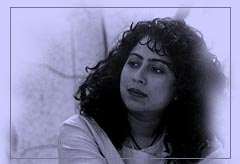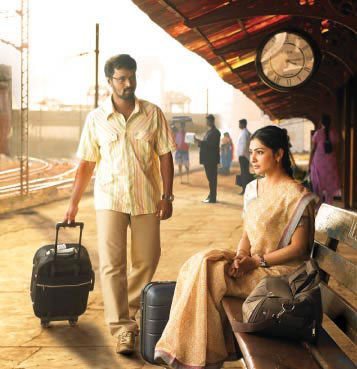India - Order FREE Travel Brochure! Language Schools and Language Study Vacations - Order FREE Travel Brochure!
AN APPEAL FOR SUPPORT
- We seek your support to meet expenses relating to formatting of articles and books, maintaining and running the journal through hosting, correrspondences, etc.Please write to the Editor in his e-mail address mthirumalai@comcast.net to find out how you can support this journal.
Also please use the AMAZON link to buy your books. Even the smallest contribution will go a long way in supporting this journal. Thank you. Thirumalai, Editor.
BOOKS FOR YOU TO READ AND DOWNLOAD FREE!
- A STUDY OF THE SKILLS OF READING
COMPREHENSION IN ENGLISH DEVELOPED BY STUDENTS OF STANDARD IX IN THE SCHOOLS IN TUTICORIN DISTRICT, TAMILNADU ...
A. Joycilin Shermila, Ph.D. - A Socio-Pragmatic Comparative Study of Ostensible Invitations in English and Farsi ...
Mohammad Ali Salmani-Nodoushan, Ph.D. - ADVANCED WRITING - A COURSE TEXTBOOK ...
Parviz Birjandi, Ph.D.
Seyyed Mohammad Alavi, Ph.D.
Mohammad Ali Salmani-Nodoushan, Ph.D. - TEXT FAMILIARITY, READING TASKS, AND ESP TEST PERFORMANCE: A STUDY ON IRANIAN LEP AND NON-LEP UNIVERSITY STUDENTS - A DOCTORAL DISSERTATION ...
Mohammad Ali Salmani-Nodoushan, Ph.D. - A STUDY ON THE LEARNING PROCESS OF ENGLISH
BY HIGHER SECONDARY STUDENTS
WITH SPECIAL REFERENCE TO DHARMAPURI DISTRICT IN TAMILNADU ...
K. Chidambaram, Ph.D. - SPEAKING STRATEGIES TO OVERCOME COMMUNICATION
DIFFICULTIES IN THE TARGET LANGUAGE SITUATION - BANGLADESHIS IN NEW ZEALAND ...
Harunur Rashid Khan - THE PROBLEMS IN LEARNING MODAL AUXILIARY VERBS IN ENGLISH AT HIGH SCHOOL LEVEL ...
Chandra Bose, Ph.D. Candidate - THE ROLE OF VISION IN LANGUAGE LEARNING
- in Children with Moderate to Severe Disabilities ...
Martha Low, Ph.D. - SANSKRIT TO ENGLISH TRANSLATOR ...
S. Aparna, M.Sc. - A LINGUISTIC STUDY OF ENGLISH LANGUAGE CURRICULUM AT THE SECONDARY LEVEL IN BANGLADESH - A COMMUNICATIVE APPROACH TO CURRICULUM DEVELOPMENT by
Kamrul Hasan, Ph.D. - COMMUNICATION VIA EYE AND FACE in Indian Contexts by
M. S. Thirumalai, Ph.D. - COMMUNICATION
VIA GESTURE: A STUDY OF INDIAN CONTEXTS by M. S. Thirumalai, Ph.D. - CIEFL Occasional
Papers in Linguistics,
Vol. 1 - Language, Thought
and Disorder - Some Classic Positions by
M. S. Thirumalai, Ph.D. - English in India:
Loyalty and Attitudes
by Annika Hohenthal - Language In Science
by M. S. Thirumalai, Ph.D. - Vocabulary Education
by B. Mallikarjun, Ph.D. - A CONTRASTIVE ANALYSIS OF HINDI
AND MALAYALAM
by V. Geethakumary, Ph.D. - LANGUAGE OF ADVERTISEMENTS
IN TAMIL
by Sandhya Nayak, Ph.D. - An Introduction to TESOL:
Methods of Teaching English
to Speakers of Other Languages
by M. S. Thirumalai, Ph.D. - Transformation of
Natural Language
into Indexing Language:
Kannada - A Case Study
by B. A. Sharada, Ph.D. - How to Learn
Another Language?
by M.S.Thirumalai, Ph.D. - Verbal Communication
with CP Children
by Shyamala Chengappa, Ph.D.
and M.S.Thirumalai, Ph.D. - Bringing Order
to Linguistic Diversity
- Language Planning in
the British Raj by
Ranjit Singh Rangila,
M. S. Thirumalai,
and B. Mallikarjun
REFERENCE MATERIAL
- UNIVERSAL DECLARATION OF LINGUISTIC RIGHTS
- Lord Macaulay and
His Minute on
Indian Education - In Defense of
Indian Vernaculars
Against
Lord Macaulay's Minute
By A Contemporary of
Lord Macaulay - Languages of India,
Census of India 1991 - The Constitution of India:
Provisions Relating to
Languages - The Official
Languages Act, 1963
(As Amended 1967) - Mother Tongues of India,
According to
1961 Census of India
BACK ISSUES
- FROM MARCH 2001.
- FROM JANUARY 2002.
- INDEX OF ARTICLES
FROM MARCH, 2001
to APRIL 2007. - INDEX OF AUTHORS
AND THEIR ARTICLES
FROM MARCH, 2001
- APRIL 2007
- E-mail your articles and book-length reports in Microsoft Word to mthirumalai@comcast.net.
- Contributors from South Asia may send their articles to
B. Mallikarjun,
Central Institute of Indian Languages,
Manasagangotri,
Mysore 570006, India or e-mail to mallikarjun@ciil.stpmy.soft.net. PLEASE READ THE GUIDELINES GIVEN IN HOME PAGE IMMEDIATELY AFTER THE LIST OF CONTENTS. - Your articles and booklength reports should be written following the MLA, LSA, or IJDL Stylesheet.
- The Editorial Board has the right to accept, reject, or suggest modifications to the articles submitted for publication, and to make suitable stylistic adjustments. High quality, academic integrity, ethics and morals are expected from the authors and discussants.
Copyright © 2007
M. S. Thirumalai
TOWARDS SELF-DISCOVERY -
A COMPARATIVE STUDY OF THE LEAD CHARACTERS OF
ANITA NAIR’S
LADIES COUPÉ AND THE BETTER MAN
Poornavalli Mathiaparanam, M.A., M.Phil.R. Saraswathy, M.A.

Among the various Indian writers writing in English, Anita Nair is easily accepted as an efficient practitioner of the genre of fiction. Her popular works include The Better Man (1999), Ladies Coupé (2001), and Mistress (2005). She mesmerizes the reader with her evocative language and descriptions with which her novels abound.
Anita on Her Novels
There is none better than Anita herself to talk about her own writing. Raising a question, "What makes your writing different from other Indians writing in English?" Anita writes,
First of all, my books are set in the everyday world of India.
Secondly, the characters who speak English in my book do so without making a farce out of it. To me, what a person says is more important than how they speak their words. And, this belief has found its way into all my writing. The other aspect is that in a book such as The Better Man that is set in a village, English is seldom spoken. But that does not mean that the average Keralite is illiterate or unaware of the world. He has probably read Omar Khayyam and Marx, Russell and Tolstoy in translation so that degree of education is perceived in the way he uses his words. So, if some of my characters sound erudite, they are, in the language they grew up speaking. In such a context, Hybrid-English or the lack of it makes no difference to the atmosphere or plot or characterization.
Thirdly, I do not concentrate on the cerebral [and sometimes the inaccessible] world. I aim at sharp characterization and it is this tension between characters that allows the movement of the narrative to progress at a brisk pace. While my ideas are very identifiable, relating to common sensibilities, I never make a conscious attempt to 'universalize' my story.
http://www.anitanair.net/faq.htm#4
Ladies Coupé and The Better Man

Anita Nair's novels Ladies Coupé and The Better Man have characters and themes of different nature, while at the same time these also have in common the idea of self-discovery.
The central characters of both the novels, as the stories progress, discover that they have never been living for themselves, but for others, governed by societal pressures. Thus, both the novels deal with how the lead characters shed off their masks, discover their selves, and start living for themselves. Thus, in this aspect, the lead character of Ladies Coupe?, Akhilandeswari, and of The Better Man, Mukundan, indeed, have similarities that lend them to comparison.
Ladies Coupé
Akhilandeswari, or Akhila as she is called in the novel Ladies Coupe??, is seen at the railway station, as the novel opens, preparing to go to Kanyakumari. The novel begins on a note of Feminism as she is irritated by the way women and the handicapped have to stand together while men stand separately at the ticket counter. It is indeed humiliating for her that women have been categorized along with the handicapped.
Akhila as the Father and Protector of the Family
As the novel unfolds, we come to know of Akhila's past. She was born into a Tamil Brahmin family, with her father, a government servant, as the only breadwinner of the family, and who had to support his wife and four children. However, Akhila is forced to take up the responsibility of her household after her father's death. She toils hard for her family, but no one seems to understand the fact that she too needs to have a life of her own, married with children. Her mother is more worried of Akhila's younger sister Padma's marriage and seems to have the notion that Akhila is a man, the head of the family, who has replaced her husband, Akhila's father. All of them seem to have accepted the idea that Akhila is to lead her whole life as a spinster. After her mother's death, Akhila is fed up with her routine life and decides to set on her journey to Kanyakumari.

Use of the Roman Script in India | Segmental Marketing and Language Use in India | Process Or Product: An Explorative/Comparative Study of ESL/EFL Writing Behaviours | UNESCO Universal Declaration on Cultural Diversity | Flowers and Fragrance: Some Considerations about Children's Literature in India | A UNESCO Report on Linguistic Diversity and Knowledge Societies | The Interaction between Field Dependent/Independent Learning Styles and Learners’ Linguality in Third Language Acquisition | Towards Self-Discovery: A Comparative Study of the Lead Characters in Anita Nair's Ladies' Coupé and The Better Man | HOME PAGE OF MAY 2007 ISSUE | HOME PAGE | CONTACT EDITOR
Poornavalli Mathiaparanam, M.A., M.Phil.
R. Saraswathy, M.A.
Post-Graduate Department of English
PSGR Krishnammal College for Women
Coimbatore 641 004, Tamilnadu
India
srisaras_ma@yahoo.co.in
- Send your articles
as an attachment
to your e-mail to
mthirumalai@comcast.net. - Please ensure that your name, academic degrees, institutional affiliation and institutional address, and your e-mail address are all given in the first page of your article. Also include a declaration that your article or work submitted for publication in LANGUAGE IN INDIA is an original work by you and that you have duly acknolwedged the work or works of others you either cited or used in writing your articles, etc. Remember that by maintaining academic integrity we not only do the right thing but also help the growth, development and recognition of Indian scholarship.

